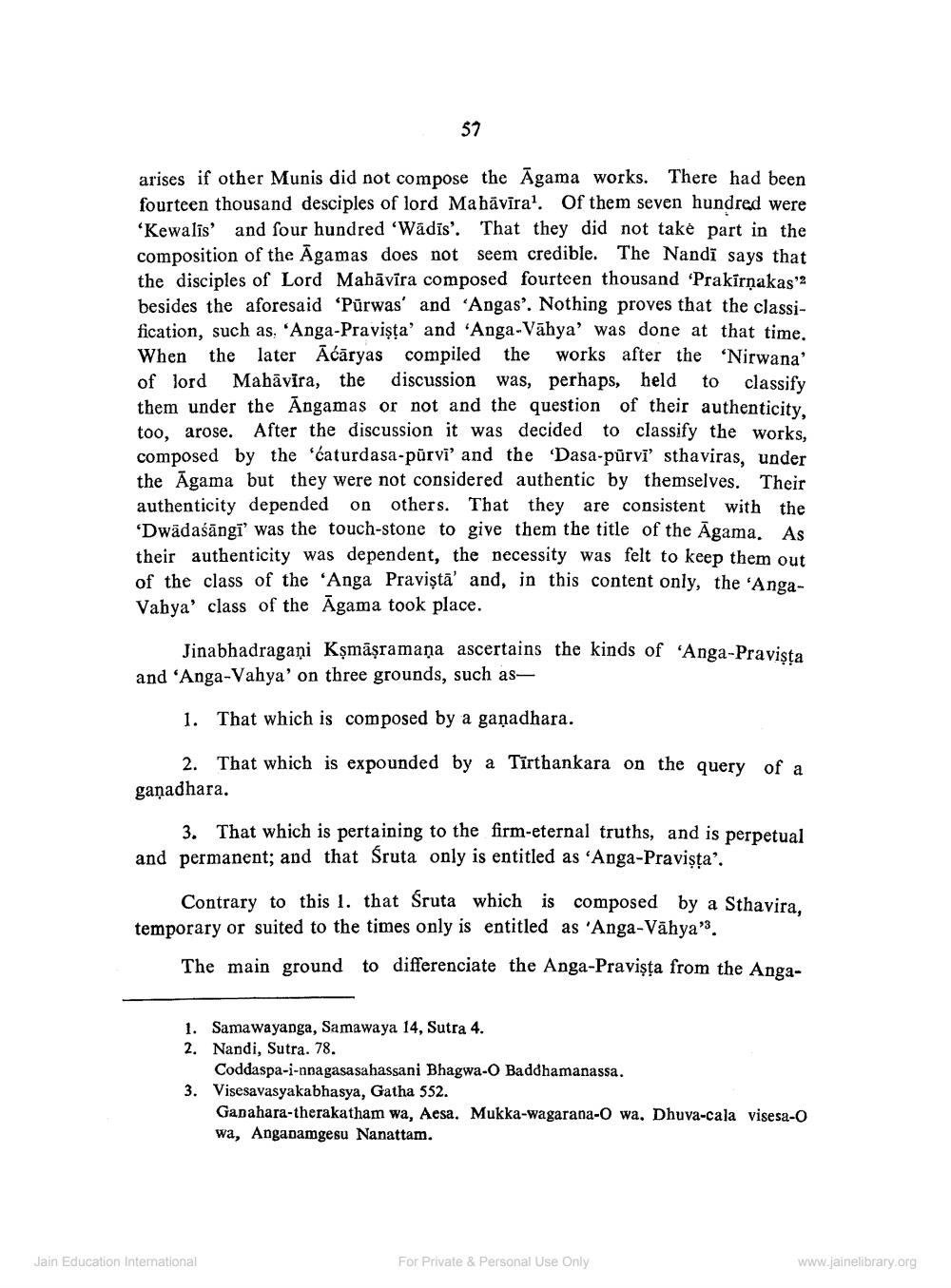________________
57
arises if other Munis did not compose the Agama works. There had been fourteen thousand desciples of lord Mahävira1. Of them seven hundred were 'Kewalis' and four hundred 'Wādīs'. That they did not take part in the composition of the Agamas does not seem credible. The Nandi says that the disciples of Lord Mahavira composed fourteen thousand 'Prakirnakas" besides the aforesaid 'Purwas' and 'Angas'. Nothing proves that the classi fication, such as, 'Anga-Pravista' and 'Anga-Vahya' was done at that time. When the later Acaryas compiled the works after the 'Nirwana' of lord Mahavira, the discussion was, perhaps, held to classify them under the Angamas or not and the question of their authenticity, too, arose. After the discussion it was decided to classify the works, composed by the 'éaturdasa-pūrvi' and the 'Dasa-pūrvi' sthaviras, under the Agama but they were not considered authentic by themselves. Their authenticity depended on on others. That they are consistent with the 'Dwadasangi' was the touch-stone to give them the title of the Agama. As their authenticity was dependent, the necessity was felt to keep them out of the class of the 'Anga Pravişta' and, in this content only, the 'AngaVahya' class of the Agama took place.
Jinabhadragani Kşmaşramaņa ascertains the kinds of 'Anga-Pravista and 'Anga-Vahya' on three grounds, such as
1. That which is composed by a ganadhara.
2. That which is expounded by a Tirthankara on the query of a ganadhara.
3. That which is pertaining to the firm-eternal truths, and is perpetual and permanent; and that Sruta only is entitled as 'Anga-Pravista".
Contrary to this 1. that Śruta which is composed by a Sthavira, temporary or suited to the times only is entitled as 'Anga-Vähya".
The main ground to differenciate the Anga-Pravista from the Anga
1. Samawayanga, Samawaya 14, Sutra 4.
2. Nandi, Sutra. 78.
Coddaspa-i-nnagasasahassani Bhagwa-O Baddhamanassa.
3. Visesavasyakabhasya, Gatha 552.
Ganahara-therakatham wa, Aesa. Mukka-wagarana-O wa. Dhuva-cala visesa-O wa, Anganamgesu Nanattam.
Jain Education International
For Private & Personal Use Only
www.jainelibrary.org




